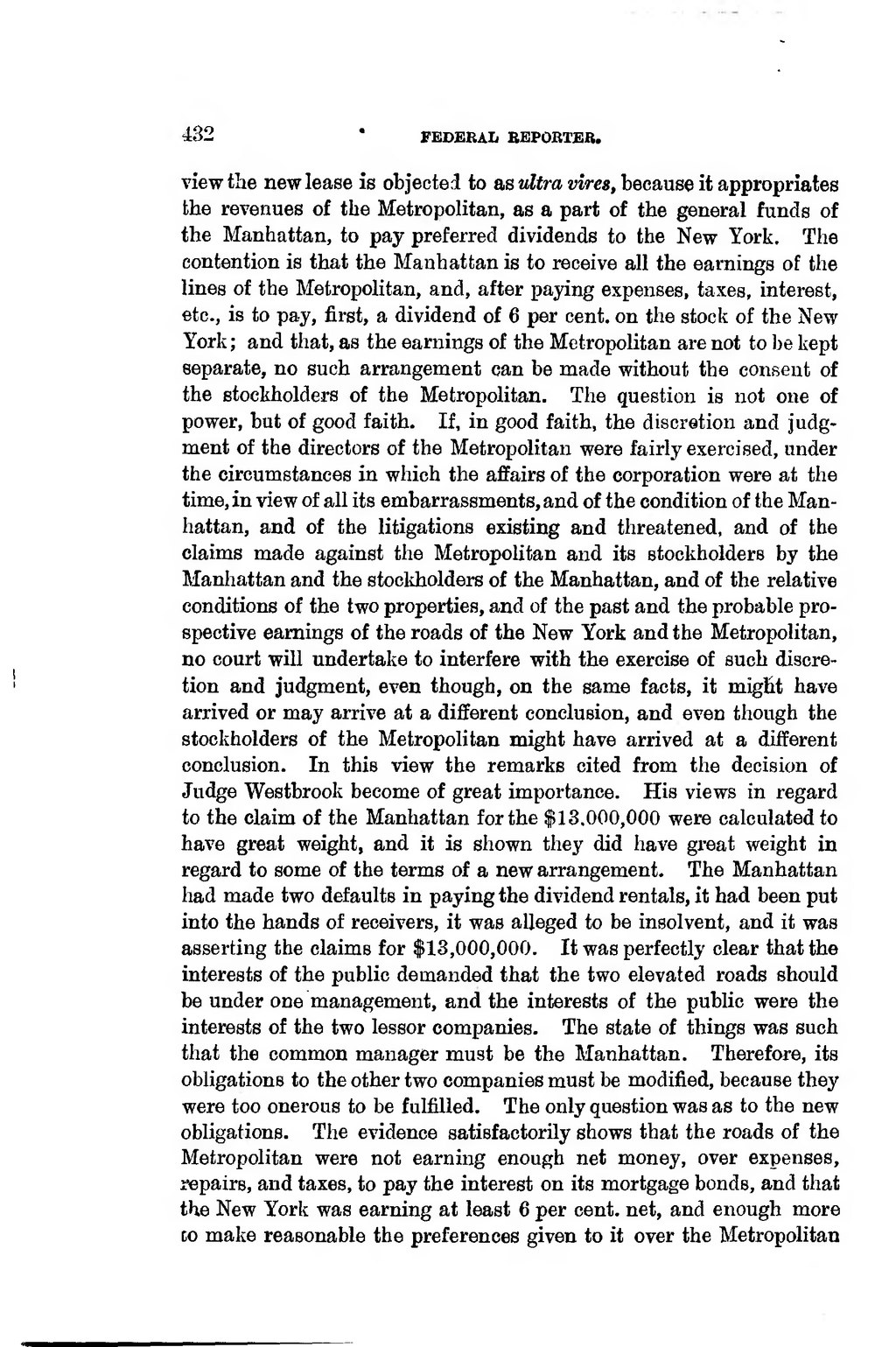432 • FEDERAL REPORTER. �viewtlie newiease is objectei to a,B ultra vires, because it appropriates the revenues of the Metropolitan, as a part of the genei-al funds of the Manhattan, to pay preferred dividends to the New York. The contention is that the Manhattan is to receive all the earnings of the Unes of the Metropolitan, and, after paying expenses, taxes, interest, etc., is to pay, first, a dividend of 6 per cent, on the stock of the New York; and that, as the earnings of the Metropolitan are not to be kept separate, no such arrangement can be made without the consent of the stoekholders of the Metropolitan. The question is not one of power, but of good faith. If, in good faith, the discretion and judg- ment of the directors of the Metropolitan were fairly exercised, under the circumstanees in which the affaira of the corporation were at the time, in view of all its embarrassments, and of the condition of the Man- hattan, and of the litigations existing and threatened, and of the claims made against the Metropolitan and its stoekholders by the Manhattan and the stoekholders of the Manhattan, and of the relative conditions of the two properties, and of the past and the probable pro- spective earnings of the roads of the New York and the Metropolitan, no court will undertake to interfere with the exercise of such discre- tion and judgment, even though, on the same facts, it might have arrived or may arrive at a different conclusion, and even though the stoekholders of the Metropolitan might have arrived at a different conclusion. In this view the remarks cited from the decision of Judge Westbrook become of great importance. His views in regard to the claim of the Manhattan for the $13.000,000 were calculated to have great weight, and it is shown they did have great weight in regard to some of the terms of a new arrangement. The Manhattan had made two defaults in paying the dividend rentals, it had been put into the hands of receivers, it was alleged to be insolvent, and it was asserdng the claims for $13,000,000. It was perfectly clear that the interests of the public demanded that the two elevated roads should be under one management, and the interests of the public were the interests of the two lessor companies. The state of things was such that the common manager must be the Manhattan. Therefore, its obligations to the other two companies must be modified, because they were too onerous to be fulfilied. The only question was as to the new obligations. The evidence satisfactorily shows that the roads of the Metropolitan were not earning enough net money, over expenses, repairs, and taxes, to pay the interest on its mortgage bonds, and that the New York was earning at least 6 per cent, net, and enough more co make reasonable the preferences given to it over the Metropolitan ��� �
